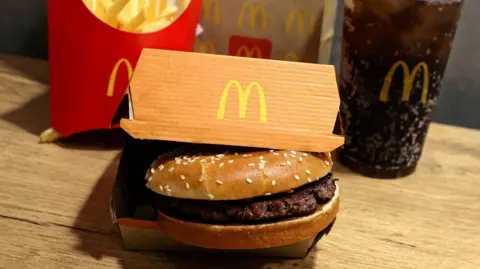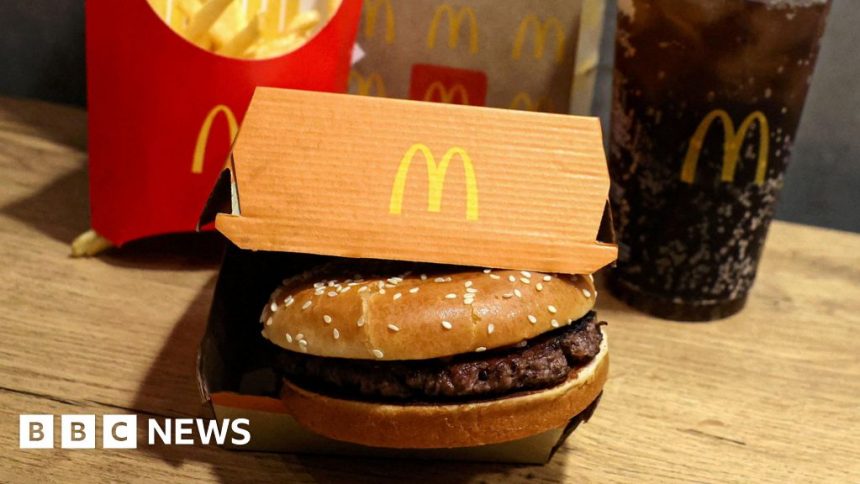McDonald’s Quarter Pounder back after E. coli outbreak
 Reuters
ReutersMcDonald’s is resuming sales of its Quarter Pounder burgers in all of its US restaurants after ruling out its beef patties as the source of an E. coli outbreak that left at least one person dead and dozens of others ill.
The fast food giant said samples of its beef patties that were taken by the Colorado Department of Agriculture (CDA) had tested negative for the bacteria.
The company added that the CDA had no plans for further testing.
McDonald’s suspended sales of Quarter Pounder last week in around a fifth of its US restaurants in response to the outbreak.
“The issue appears to be contained to a particular ingredient and geography, and we remain very confident that any contaminated product related to this outbreak has been removed from our supply chain,” Cesar Piña, McDonald’s North America Chief Supply Chain Officer said in a statement.
Earlier, the US Food and Drug administration singled out the slivered onions in Quarter Pounders as another potential source of the outbreak.
McDonald’s said it had stopped working with the supplier of the onions and had removed them from its supply chain.
“The 900 restaurants that historically received slivered onions from Taylor Farms’ Colorado Springs facility will resume sales of Quarter Pounders without slivered onions,” McDonald’s said.
McDonald’s is facing lawsuits from several people who fell ill.
The US Centers for Disease Control and Prevention (CDC) advised people who had eaten a Quarter Pounder and showed symptoms such as diarrhoea, fever and vomiting, to see a doctor.
Symptoms can develop up to four days after contaminated food is consumed.
Most people will recover on their own within five to seven days but, some cases may require hospital care.
McDonald’s shares have lost more than 7.5% of their value since the CDC reported the outbreak last week.
In July, McDonald’s posted a surprise drop in global sales, its first quarterly sales decline in more than three years.
Fast food chains like McDonald’s and Burger King have had to focus on offering more attractive value meals, as lower income customers feel the pinch from surging prices in recent years.






